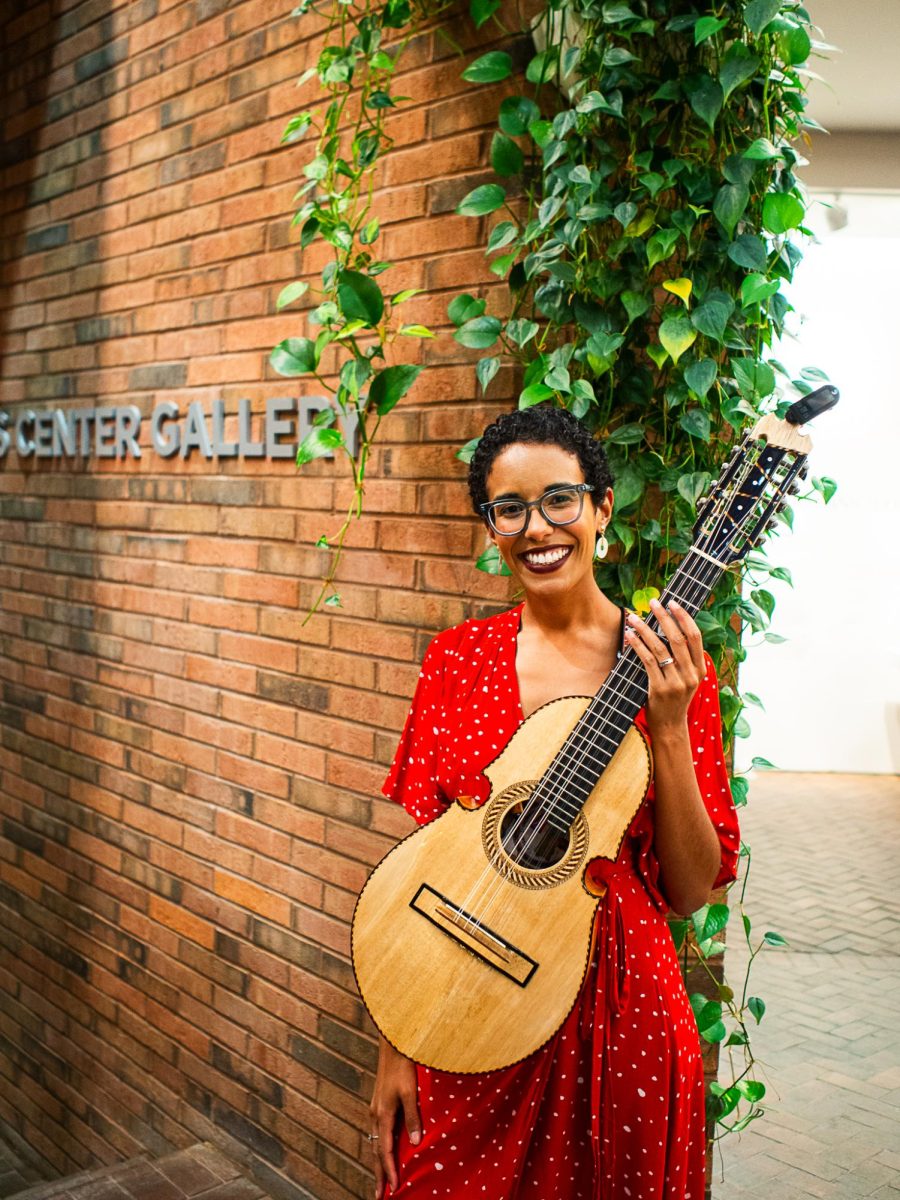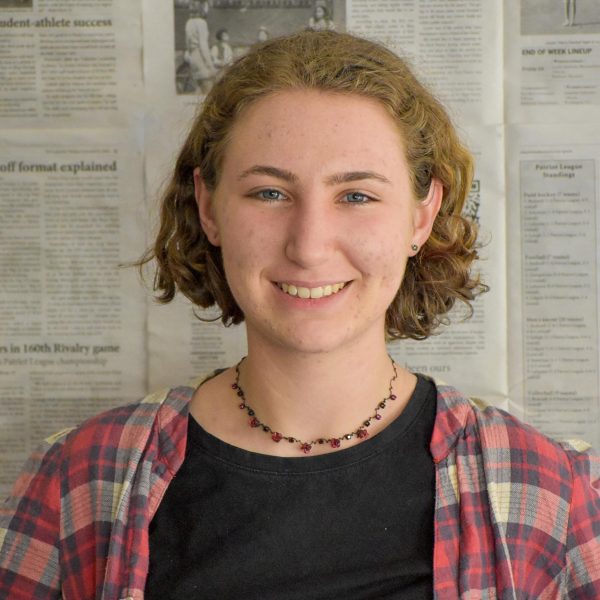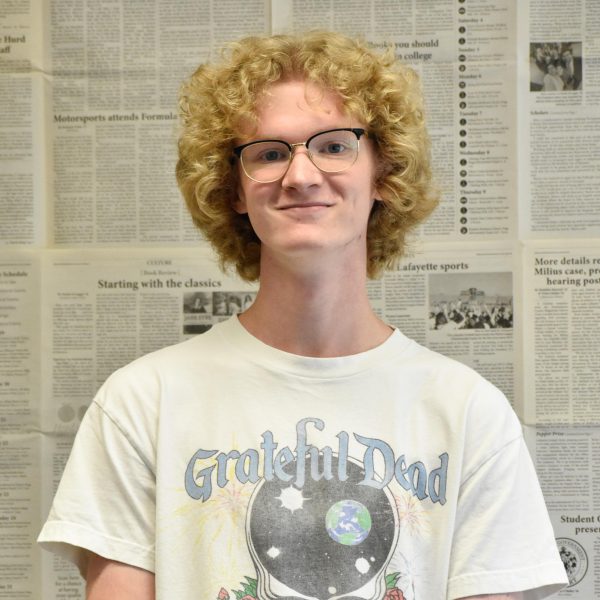As part of Lafayette College’s Hispanic Heritage Month celebrations last week, Emmy-nominated composer Fabiola Méndez visited campus to screen her short film, teach a workshop and perform at the Williams Art Center.
“People always say that when they hear the double sounds, the double strings, it makes them think about folk,” Méndez said of the cuatro, a string instrument with five courses, or double strings. “It connects you with the roots of whatever culture you’re from.”
Méndez grew up in Caguas, Puerto Rico, and attended the Berklee College of Music in Boston. She started playing the cuatro, the national instrument of Puerto Rico, at age six. In 2018, Méndez became the first Berklee student to graduate with the cuatro as a principal instrument.
Méndez combines folk, jazz and Afro-Caribbean traditions in her music. She often uses traditional cultural melodies and rhythms from Puerto Rico and different parts of Latin America.
“Sometimes when you think about folk music, it’s like, ‘Oh, that’s old music,’” Méndez said. “So, how can we make it modern and relevant and alive again? And move it forward so that it doesn’t die?”
“It can speak to our souls, doesn’t matter where it comes from or what language it’s in,” Méndez continued, referencing music as a whole.
She wants to inspire listeners to connect with their identities and their cultures.
“The roots of who we are are the things that will allow us to bloom into whatever we want in life,” Méndez said.
Beyond being a composer and a cuatro player, Méndez aims to educate.
“It’s always about sharing the knowledge and experience we have learned along the way with our students,” said Juan Maldonado, one of Méndez’s bandmates.
He hopes this allows students to “explore and be curious enough to ask questions along the way and become the educators, become the advocates, specifically of this music.”
Méndez screened her short film, “Negrura,” on Thursday. In the documentary, Méndez visits Afro-Latinx folks in Boston’s Latin Quarter, listening to their experiences growing up as Afro-Latinx and improvising on the cuatro in reply.
“The cuatro becomes the audience member,” Méndez said.
On Friday, Méndez taught a workshop on entrepreneurship at the Dyer Center.
“It was an opportunity for students to learn exactly about that idea of the connection between being an artist and being an entrepreneur,” said Rita Chesterton, the director for innovation and entrepreneurship at the Dyer Center.
Méndez and Chesterton both emphasized the importance of helping artists sustain their work and themselves through steady income.
“When you get out of college, when you get out of that educational space, the question is, ‘what comes next?’ How do you make a living as a performer or as an artist?” Chesterton said. “She helps artists learn about the industry of the art that they work.”
Saturday night, Méndez performed at the Williams Art Center with two of her bandmates. They played several songs from her new album, “Flora Campesina.”
Méndez also visited several classes during her time at Lafayette, including “MUS 164: Lafayette Latin American Ensemble.” She played for the class traditional Puerto Rican rhythms and taught students to improvise and adjust their music based on the movement of a dancer.
“Cultures have their own dances and their own rituals and everything, and that’s where music comes into play,” said Yoryi Roque ‘28, a student in the Lafayette Latin American Ensemble.
“She’s very talented,” Aram Ramsey ‘26, another student in the class, said of Méndez.
“Sitting in that room while she was singing was amazing,” Ramsey added.
Jorge Torres, the professor of the Lafayette Latin American Ensemble and the head of the music department, feels that music and culture go hand-in-hand.
“I think they’re inseparable,” he said. “Music isn’t something that’s conceived in a vacuum.”















































